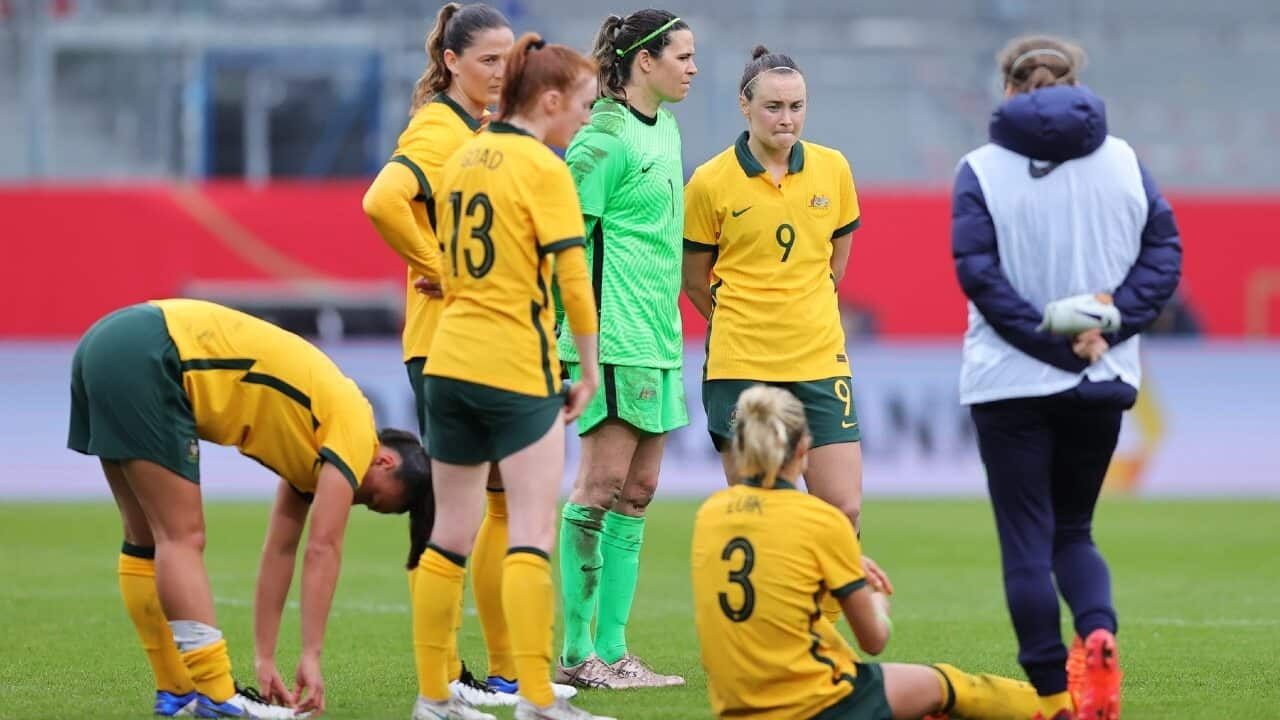Two late goals from Emily Gielnik were a mere consolation in a humbling 5-2 defeat that flattered the Australians.
The sad reality is that the seventh-ranked Matildas were outplayed and outclassed during an international match in Wiesbaden that was part of the team's preparation for the Tokyo Olympics in July.
Tony Gustavsson's side looked rusty and disjointed, which is understandable when you remember that they were playing their first match since qualifying 13 months ago.
We all know the Matildas can play much better and many fans will see this experimental match as an aberration.
Yet it is clear that the new coach has plenty of work to do if the Australians are to be genuine medal contenders in the Games.
The Swede might have to revise the way he sets up the side, for example.
For a start, the Australians were too square at the back and the slick and skilful German forwards were able to perforate their opponents' defensive line with consummate ease.
Apart from scoring five times, they must have created six or eight quality scoring chances which they missed due to a combination of poor finishing, outstanding goalkeeping by Lydia Williams or sheer misfortune.
Since the technically superior Germans dominated proceedings virtually throughout, creative midfielder Emily van Egmond was forced to play far too deep for her or her team's liking.
The upshot of this imbalance was that, as a key provider, Van Egmond was hardly ever in a position to serve captain and striker Sam Kerr.
The Chelsea star is one of the world's finest players but she was too isolated up front and became largely ineffective because she was starved of the ball.
Kerr basically had no support as all her teammates were chasing shadows virtually all afternoon and she often had to drop deep to see some ball. It was that sort of match.
However it should be pointed out that there is no disgrace in losing to the two-time world champions although the manner and scale of the defeat was very disappointing.
And with a few more matches under their belts the Matildas will be able to produce the kind of thrilling football that made them arguably the most loved national team in Australian sport.
In Gustavsson, they have a respected coach with a proven record and no doubt he will be doubling his efforts to sort out the problem areas in the team.
This was, after all, a trial match where the result was less important than the performance.
By the same token we are entitled to expect an improvement in general play in the Matildas' next international against the Netherlands in Nijmegen on Wednesday.



